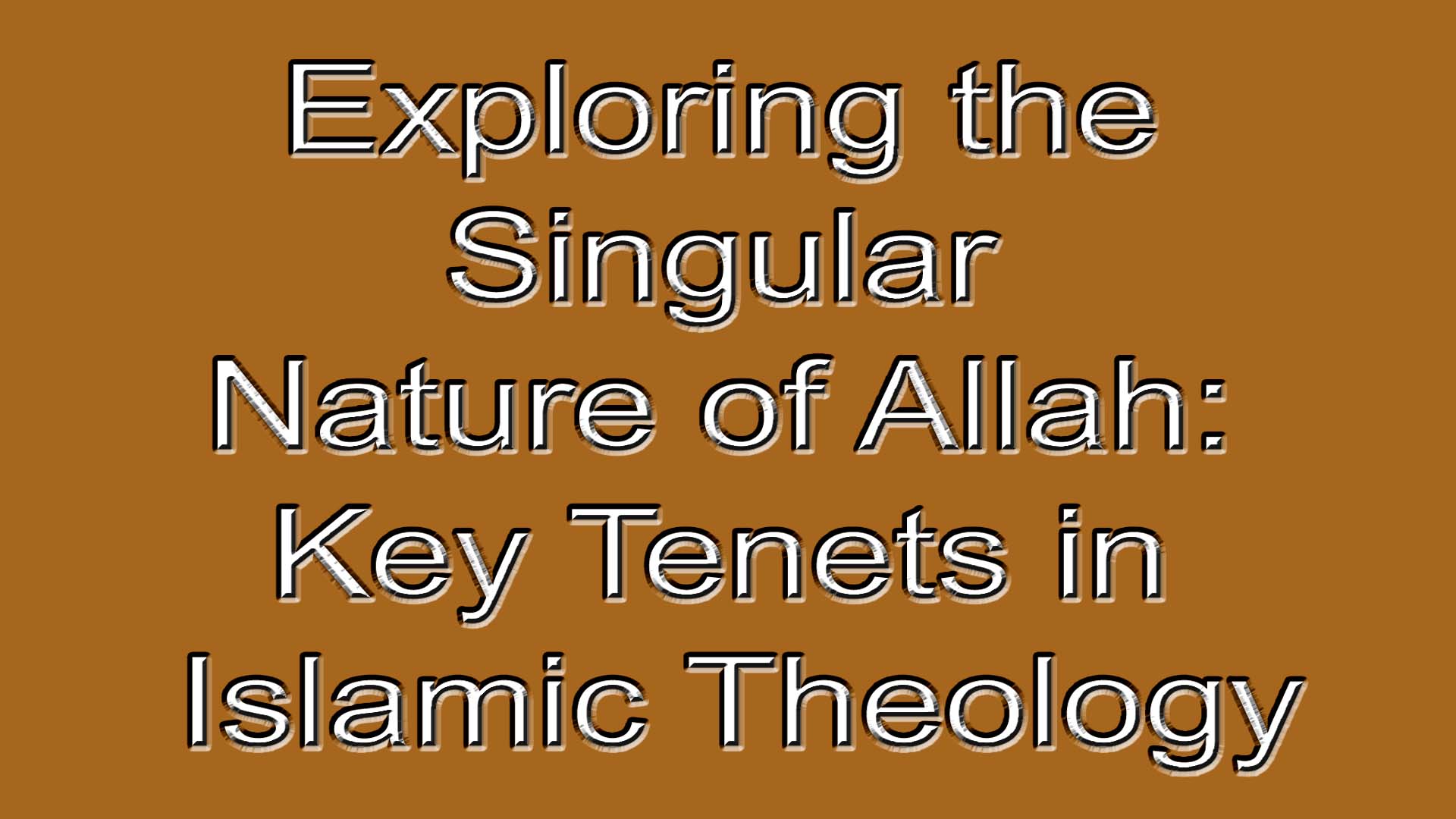

 Exploring the Singular Nature of Allah-Key Tenets in Islamic Theology
Exploring the Singular Nature of Allah-Key Tenets in Islamic Theology
In the tapestry of Islamic theology, the attributes of Allah stand as immutable pillars, shaping the worldview and guiding the faithful in their understanding of the divine. Rooted in the Quran and elaborated upon in the Hadith, these attributes elucidate the fundamental nature of Allah, emphasizing His uniqueness, sovereignty, and transcendence. Here, we delve into the core beliefs that define the Islamic conception of Allah.
1. Absolute Oneness and Unparalleled Majesty: Central to Islamic belief is the concept of Tawhid, the absolute oneness of Allah. He stands alone, without partner, equal, or rival. This oneness extends beyond mere absence of physical counterparts to encompass His unparalleled majesty, incomparable to anything in existence.
2. Transcendence and Independence: Allah transcends human comprehension, existing beyond the limitations of human understanding. He is not bound by familial ties, needing neither offspring nor spouse. Furthermore, His sovereignty renders Him answerable to none; He is independent, requiring no assistance for His actions or decisions.
3. Creator and Sustainer of All: In Islamic theology, Allah is the ultimate creator and sustainer of the universe. He alone possesses the power to create and control all existence, without dependence on any external force. Everything in the cosmos, from the smallest atom to the vast expanse of galaxies, owes its existence and sustenance to Him.
4. Incomparable Beneficence and Authority: Allah’s authority is absolute, unchallenged by any entity. His beneficence extends to all creation, yet He remains beyond the grasp of human comprehension. While He bestows blessings upon His creation, He does so of His own volition, without obligation or need.
5. Ineffable Essence and Transcendental Nature: Allah’s essence eludes human perception, transcending the bounds of mortal comprehension. Sleep, drowsiness, and fatigue are alien to His being, for He is beyond the limitations of physicality. His greatness and holiness are beyond compare, and His size defies human imagination.
6. The Ultimate Source of Benefit and Harm: Within Islamic theology, Allah is recognized as the ultimate arbiter of fate. He alone possesses the power to benefit or harm His creation, and no force in the universe can thwart His will. Thus, reliance on anything or anyone besides Allah is deemed futile in the face of His omnipotence.
7. Eternal and Immutable: Allah’s attributes are eternal and immutable, transcending the constraints of time and space. He is the Most High, beyond any limitation, and His essence remains unchanged throughout eternity.
In essence, the attributes of Allah as delineated in Islamic theology serve to underscore His unparalleled majesty, sovereignty, and transcendence. They form the bedrock of Muslim belief, guiding adherents in their understanding of the divine and shaping their relationship with the Creator. Through reflection upon these attributes, believers seek to deepen their reverence for Allah and align their lives with His will, recognizing His absolute authority over all existence.